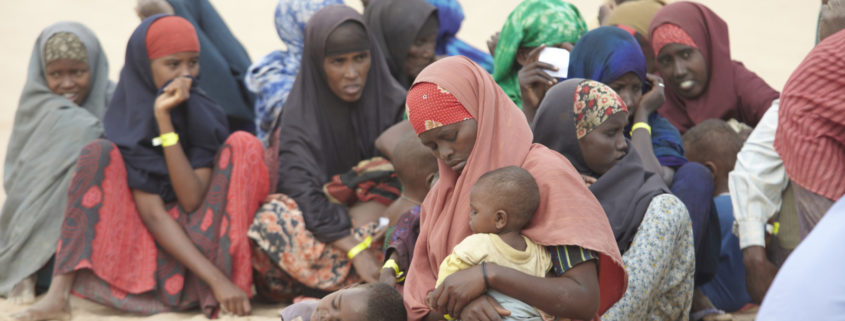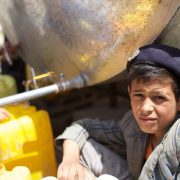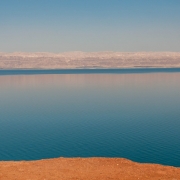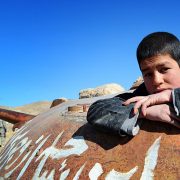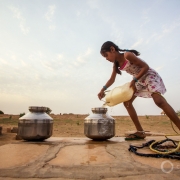HotSpots H2O, August 1: Drought and Conflict Displace 800,000 Somalis In Seven Months
The Global Rundown
Conflict and drought have displaced 800,000 people in Somalia in the past seven months. One in every 45 Yemenis is expected to contract cholera before the end of the year, according to Red Cross estimates. Two UN peacekeepers were killed in the Central African Republic while trying to deliver water to conflict-affected citizens. More than a million Congolese are without adequate water after fleeing violence is the DRC’s Greater Kasai region. Oxfam is using reverse osmosis technology to provide clean water to Syrians displaced by conflict.
“The acute water shortages have meant that people are drinking higher-risk water, taking water which they know to be contaminated but they drink it anyway.” – Gerard Waite, mission chief of International Organization for Migration Somalia. In the past seven months, drought and conflict have displaced 800,000 Somalis, in addition to the 1.1 million who were displaced prior to 2017. The majority of IDPs are living in crowded camps with inadequate food, water, and shelter. Voice of America
By The Numbers
600,000 Estimated number of people in Yemen who risk contracting cholera by the end of the year, based on a Red Cross report. This equates to roughly one in every 45 citizens. Yemen’s healthcare system, devastated by two years of conflict, is struggling to put an end to the country’s cholera epidemic. Independent
850,000 Number of children who have been displaced due to violent conflict in the Greater Kasai region of the Democratic Republic of Congo. A total of 1.4 million people have been forced from their homes and many lack basic amenities. Relief Web
Science, Studies, And Reports
An Oxfam project in Salamiyah, Syria is helping provide water for over 35,000 citizens. Salamiyah became increasingly water-stressed as refugees flooded into the city, prompting Oxfam to set up a water treatment unit. The unit, which is built on a borehole with previously unusable water, now provides up to 50,000 liters of drinkable water a day using a reverse osmosis system. Relief Web
On The Radar
Two Moroccan peacekeepers on a UN mission were killed in the Central African Republic last week while attempting to deliver water to the nearby population. Several other violent attacks occurred in recent weeks, causing many humanitarian agencies to suspend their operations. Reuters
Kayla Ritter is a recent graduate of Michigan State University, where she studied International Relations and Teaching English to Speakers of Other Languages. She is currently based in Manton, Michigan. Kayla enjoys running, writing, and traveling. Contact Kayla Ritter

